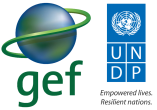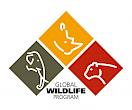About USAID

The United States Agency for International Development (USAID) is responsible for the majority of overseas development assistance from the United States Government and works to end extreme poverty and promote resilient, democratic societies while advancing security and prosperity for America and the world. www.usaid.gov/
UNDP-GEF Reducing Maritime Trafficking of Wildlife between Africa and Asia project

Financed by the GEF and implemented by UNDP between 2018 and 2021, this project under the GEF-financed, World Bank led Global Wildlife Program aims to curb maritime wildlife trafficking, targeting key routes and transit points between Africa and Asia. The GEF launched the Global Wildlife Program (GWP) in June 2015, bringing together funding from the GEF and a wide range of partners, including the Governments of participating countries, GEF Agencies, bilateral and multilateral donors, foundations, the private sector and civil society. GWP national projects are currently under implementation in 29 partner countries across Africa, Asia, and Latin America, including Kenya.
About Global Wildlife Program

The Global Wildlife Program (GWP) is a Global Partnership on Wildlife Conservation and Crime Prevention for Sustainable Development.
About Wildlife TRAPS
The Wildlife TRAPS Project, implemented by TRAFFIC and IUCN with funding support from USAID, is helping to forge cross-sectoral partnerships with government and experts in inter-governmental organisations, NGOs, academia, and the private sector to identify risk mitigation strategies to prevent future zoonotic spillover potential associated with trade in wild animals.
As well as social and behavioural change interventions, the Wildlife TRAPS project is supporting policy and regulatory reform efforts, including strengthening supply chain management systems. The identification of critical control points within wildlife trade supply chains will help target illicit and other high-risk wildlife trade practices that may facilitate the transmission of zoonotic diseases.





